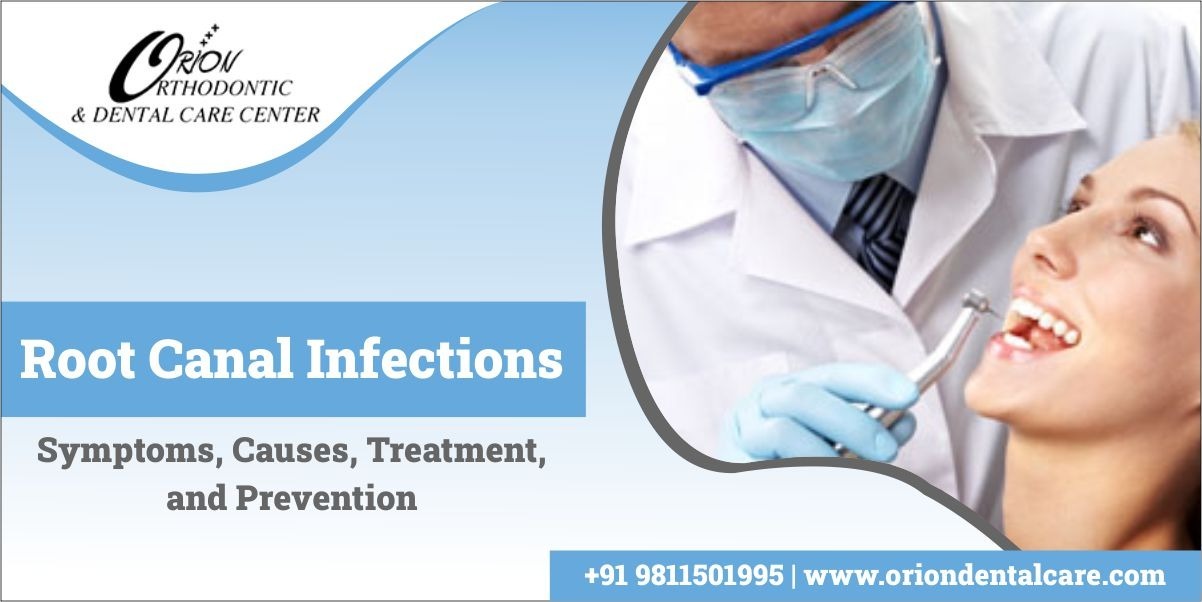An infected and painful tooth often needs a Root Canal Treatment, for repairing the decayed or infected pulp tissue. The tooth has three layers- the outer hard part- the enamel, the middle layer which is a soft yellow structure- the dentin, and the pulp, which is the innermost layer of your tooth containing the blood vessels and the nerves which maintain the vitality of your tooth. It is present in the root of the tooth in a canal-like structure called the root canal. The root canal treatment helps to remove the bacteria from your infected tooth and saves your natural tooth. It involves the removal of the decayed pulp, cleaning, filling, sealing the tooth, and finally preparing crowns for strengthening. Although considered a costly affair, given the benefits it provides, the root canal treatment cost is quite reasonable with a very high success rate of around 95%. However, like all procedures, root canal-treated teeth may have a risk of reinfections. Nothing to get panicky about, these root canal infections may be treated well. Through this article, you will find all that you wish to know about root canal infections, their causes, the ways of treating them and how you can prevent them.
Table of Content
Feel free to skip ahead if one topic catches your eye:
- What are root canal infections?
- What are the common signs and symptoms of infection after a root canal?
- Main Causes Root Canal Infections.
- How are root canal infections treated?
- FAQs
1. What are root canal infections?
Since a root canal-treated tooth has no pulp inside, we can say that it cannot be infected anymore, because the infection can happen only in living tissue. Having said that, we must also remember that the pulpless tooth is surrounded by living tissues like bones and gums and therefore, at times, an infection can recur in a tooth after being treated by root canal therapy. Although not very common, it can happen when:
- There is a new decay around the filling of the root canal-treated tooth, the bacteria may enter into the root canal through the filling and begin to infect the bone tissue surrounding the tip of the root.
- The bone tissue was already infected before the root canal treatment but was left undetected.
- Sometimes, an old root canal treated tooth which was normal can also develop infections
2. What are the common signs and symptoms of infection after a root canal?
Root canal infections can spread quickly all over your mouth therefore, it is important to detect and get them treated right away. Common symptoms include:
- Pain in root canal treated tooth: Mild pain after the root canal procedure is normal, but if it is intense on biting or applying even slight pressure, or if the intensity of pain is the same or increases even after a week, it may indicate infection.
- Swelling: If the gums surrounding your root canal-treated tooth appear swollen and tender, there may be an infection.
- Discharge: If there occurs a pus discharge that may be colorless, white, or greenish, then the infection may be the cause.
- Bad breath: A bad breath or an unpleasant taste in the mouth, even after a few days of the root canal treatment may indicate its infection.
- Fever: Infection often results in an increase in body temperature.
Sometimes severe symptoms like difficulty in breathing or swallowing may occur for which one should immediately see a dentist.

3. Main causes of root canal infections.
Root canal infections may be caused due to:
- The shape of the tooth: Sometimes the root canal shape can be complicated with narrow or curved canals, due to which the infected areas may go undetected during the procedure.
- Accessory Canals: Some extra canals of your tooth may house bacteria and cause reinfection in the treated tooth.
- Delayed capping of tooth: If permanent filling or the placement of a crown after the root canal is delayed or a crack or break in the filling may allow the bacteria to enter the canal and infect it.
- Cavities: A new cavity may develop just after the treatment resulting in reinfection.
4. How are root canal infections treated?
Root canal infections treatment can be done by:
1. A root canal retreatment, which is the same as your prior treatment. Your dentist may:
- Take an X-ray to see the infected area around the root canal.
- Numb the area around the tooth by local anesthesia.
- Protect your gums and mouth with a protective rubber dam around the affected tooth.
- Drill through the filling, enamel, and dentin to enter inside the root canal, via a dental drill.
- Remove the infected or decayed tissue and the old filling material and thoroughly clean the root canal.
- Dry the canal and fill a new filler material in the space created.
- Place a temporary filling onto the tooth to protect it, which shall be replaced by a permanent filling after 5-6 days.
- The tooth may be prepared for the placement of a crown to strengthen it and prevent future infections.
2. Root canal surgery: It is done if the infection has spread beyond the root tip in the jaw bone.
3. Tooth extraction: If there occurs a tooth fracture or a split at the center of the tooth, then tooth removal is the only option.
There are a few tips that you may follow to prevent root canal infections further:
- Maintain good oral hygiene: By brushing and flossing in a proper way at least twice a day.
- Rinse your mouth with a gentle antiseptic mouthwash: This is important for at least the first few days after the root canal treatment to prevent the invading bacteria.
- Use pain medications as indicated: Follow your dentist’s advice for medications to be taken to reduce pain and inflammation.
- Do not delay permanent restoration and crowns: Follow up with your dentist at the earliest for your final filling and crowns.
- Get your teeth professionally cleaned twice a year: This will help to keep your mouth and teeth healthy and also aid in the early detection of infection.
Seek immediate dentist’s help if you see signs of infection like pain, redness, swelling or discharge even if they are mild.
5. FAQ’s
1. Can old root canals cause an infection?
Yes, the filling inside a root canal may decompose and cause an infection, improper or cracked filling, and bad oral hygiene facilitates this infection.
2. Can there be an infection under a root canal?
Yes, this is possible, as the bacteria may enter from the damaged or a poor filling and reach the tip of the root canal and may spread infection in the jaw bone and tissue structures below the root canal.
3. What is the root canal cost in Delhi NCR?
The root canal treatment cost depends on several factors like location, tooth shape, degree of infection, etc. on average, the cost ranges from 6000-15000 INR.
Takeaway
At Orion dental center, which is the best dental clinic in Delhi NCR, you will get all your dental solutions with personalized treatment plans in a comfortable and safe environment. The most qualified and experienced team of doctors using the most advanced and latest technology promises outstanding results at an affordable cost.



